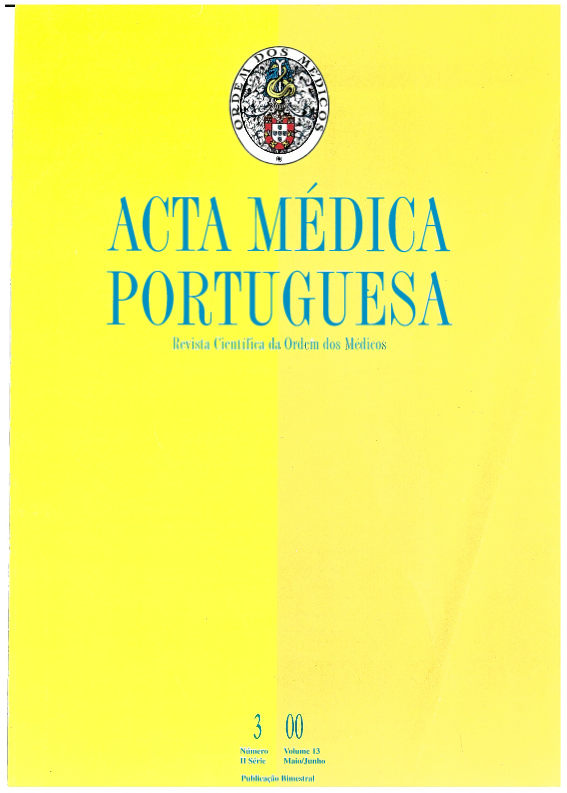Hospital discharge letter --Clinical information for the family physician.
DOI:
https://doi.org/10.20344/amp.1777Abstract
There are aspects related with the proportion and quality of discharge letters which may influence the management of shared health care after hospital discharge; we describe them taking into consideration that no changes regarding the usual way of giving hospital discharge took place.To determine the proportion of cases in which the hospital discharge of inpatients was accompanied with a discharge letter and to measure its quality.A descriptive and transverse observation study referring to the year of 1996. The authors observed, in the clinical files of this Department, the total cases of discharge of inpatients with ischaemic heart disease (123 cases). Besides measuring the variable "discharge letter existence", we studied the composed variable discharge letter quality (existence of clinical history data, objective observation data, complementary test results, diagnosis, therapeutic procedures, and also the readability of the clinical information and the existence of the legible name of the specialist).From the study of 121 cases of discharge of inpatients with ischaemic heart disease, 90.2% presented discharge letters. When studied, their quality was considered sufficient in 57.7% and insufficient in the rest of the cases. We point out that 29.7% of the discharge letters did not present objective observation data.The clinical information provided in this Department, at the time of hospital discharge, presents a higher proportion and quality than that observed in other studies.Downloads
Downloads
How to Cite
Issue
Section
License
All the articles published in the AMP are open access and comply with the requirements of funding agencies or academic institutions. The AMP is governed by the terms of the Creative Commons ‘Attribution – Non-Commercial Use - (CC-BY-NC)’ license, regarding the use by third parties.
It is the author’s responsibility to obtain approval for the reproduction of figures, tables, etc. from other publications.
Upon acceptance of an article for publication, the authors will be asked to complete the ICMJE “Copyright Liability and Copyright Sharing Statement “(http://www.actamedicaportuguesa.com/info/AMP-NormasPublicacao.pdf) and the “Declaration of Potential Conflicts of Interest” (http:// www.icmje.org/conflicts-of-interest). An e-mail will be sent to the corresponding author to acknowledge receipt of the manuscript.
After publication, the authors are authorised to make their articles available in repositories of their institutions of origin, as long as they always mention where they were published and according to the Creative Commons license.









